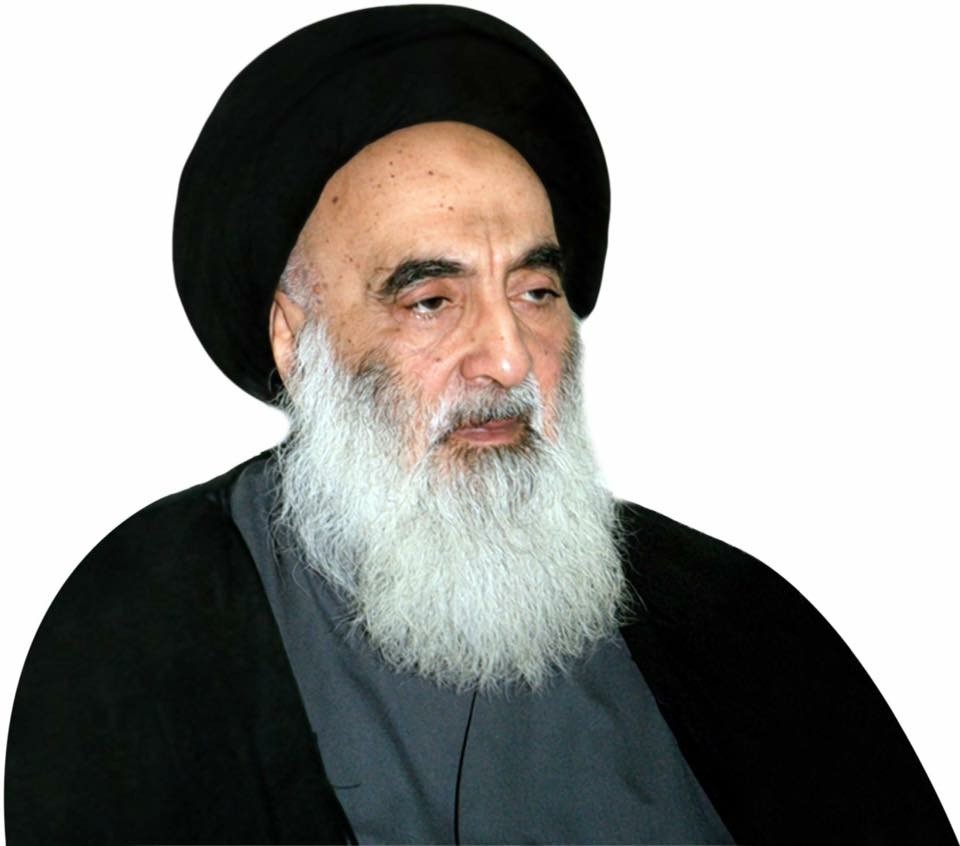The World Federation is pleased to share with you the CoEJ nominations submitted to us by you! Click here to find out who our community nominated for Fatima Inspires 2019.

A delegation of The World Federation of KSIMC visited His Eminence Ayatollah Al-Sayyid Ali Al-Husseini Al-Sistani (May Allah swt give him a long and healthy life) in Najaf-al-Ashraf in July 2017. The delegation comprised of the President, Anwarali Dharamsi, Vice President Shabbar Dhalla, Secretary General Shan E Abbas Hassam, Hon. Treasurer Mohamedkazim Bhaloo, Assistant Hon. Treasurer Muntazir Bhimji, Assistant Secretary General Mahmood Dhala, Executive Councillor Safder Jaffer, the Head of Islamic Education Dr Murtadha Alidina and the Head of Marketing and Communication Anisa Kanji.
The WF President conveyed the Khoja Community’s best wishes to his Eminence and congratulated him on the recent liberation of Mosul that was inspired by his leadership. His Eminence replied by recalling that when he issued his fatwa [for Iraqis to join the war effort], there was a probability for a limited response, especially because His Eminence does not have an organised party or an institutionalised movement, and neither does he believe in one. However, he prayed through the tadharru and tawassul of Amir al-Mumineen (a) and the A’imma (a) and it was with their barakah that 2 million people responded. Despite carefully designed plots, the enemies were overcome and victory was established.
The President thanked His Eminence for the continued and prompt support from His office and the excellent liaison with his son Hujjatul Islam Mohamed Ridha Sistani. His Eminence responded by stating that he prays for the Khoja Community’s success in this world and the hereafter on a daily basis without fail, both before fajr salah and also in the ta’qeebat of fajr (post salah).
His Eminence continued by reminding the President and the delegation that the foundations and principles and core values as laid out by Marhum Mulla Asgharali MM Jaffer were the ones that The WF should continue to adhere to. He stated that as long as The WF stood by those values, they were moving in the right direction. His Eminence fondly remembered Marhum Mulla Asgharali and stated that he was a reliable scholar and that Najaf has never forgotten him. He prayed for the Allah (SWT) to raise the station of Marhum.
The President then stated that in order to meet the current challenges of our time, he has appointed one of our leading community scholars Sheikh Dr Murtadha Alidina as Head of the Islamic Education Department. His Eminence acknowledged the appointment and reminded the delegation again of the need to stick the values of the founding father (Marhum Mulla Asgharali) for the future success of our institutions.
The delegation sought counsel from His Eminence on a variety of religious and social issues in particular (summarised below):
1. Same Gender marriage that transpired in Vancouver Canada
The delegation sought Agha’s advice on how the community needs to manage this. [Prior to the meeting, a Farsi translation of The WF issued statement in response to the Vancouver affair was shared with His Eminence].
His Eminence stated that the advice The WF issued via the statement was good, measured and appropriate. He stated The WF did its duty of nahi anil munkar. Agha also clarified and expounded the following:
- According to ALL Islamic schools of thought, such same gender matrimony is not permissible. Sins are of two types: One is the sin itself, and the other is promoting the sin which is an even a bigger sin.
- The parable Agha gave was that of an alcoholic committing the sin of drinking. The drinking itself is a sin; but for the alcoholic to then publicly announce and promote that alcohol is permissible is worse than the act of consuming the alcohol itself
- Agha cautioned however that one should not victimise or name and shame individuals. He said such behaviour is condemned and the focus should be on the ‘issues at hand’ and not the ‘personalities’.
- In particular, Agha stressed the need to not spread the faults and sins of people and not to raise issues where there are doubts as to whether sins have been committed without having adequate evidence.
- Agha reminded the delegation that ghibah is a sin even when the defect of the individual is known. As such tohmah (speculating about faults) is even worse.
- Agha stated that the din of Islam is based on satr (concealing one’s faults) as much as possible. It does not befit the din to expose sins in public (unless one condemns it in public)
- Agha also stated that deeds are based on kitman (confidentiality) and gave the example of zina (fornication). Punishment cannot be dispensed for zina unless there are 4 witnesses to the act itself. If 3 out of the 4 witnesses state the sin and the 4th one expresses doubt, then all 3 witnesses are liable to punishment. Agha narrated that Imam Ali (a) has said ‘If I am of the 4 witnesses, I would want to be the 4th one’. Agha spent a considerable time emphasising on need of kitman + covering the faults of believers as much as possible unless publicly expressed and encouraged.
- Agha also mentioned that the media today tries to trivialise sins and expose the lives of individuals whereas the life of an individual is ‘sacred’ in the eyes of Islam.
2. Code of Leadership
His Eminence mentioned Marhum Mulla Asghar again, saying that Marhum had stated that a leader of a community like ours should be cognisant of not committing sins in public (zahir-us-salah), though the level of adalah required for a community leader is not the same as that required of an Imam of Jamaat or Juma. Basic taqwa and not committing open sins is adequate. One must be cognisant of the things that are forbidden.
3.Interaction with other communities
On seeking guidance on the interaction with other communities (including Ismailis, Christians, Sunnis etc.) for humanitarian work, etc. Agha stated that it was the community leadership to weigh the pros and cons of each relationship and extent of interaction required.
4. Guidance on Political involvement and civic engagement (permissible)
Agha stated that it was for the leadership to weigh the pros and cons of such engagement and reach a rational decision. If by engaging and involving oneself, there was benefit to Islam and the society, then it would be acceptable. However, if there was need to compromise on faith and values of Islam, it should be avoided. The overall law is to avoid (Awlawiyat to avoid) unless there were very important issues.
5. Advice on The WF Leadership role
Agha stated the following:
- Control the love for this world (worldly power, materialism, status, etc.). He quoted the hadith – ‘This world is the abode of termination (temporal) and the hereafter is the abode of permanence’. (الأخرة دار البقاء دار الفنى فإن الدنيا)
- ‘How long will this world last’ he commented. ‘What can this dunya do?’ ‘We have seen our leaders come and gone – their children are running it. What have they given to their children?’
As a marja, he has instructed his wakeels (represenatives) not to send anything to him and to spend it on the upkeepment of the Hawza (seminaries). Agha stated he does not own any land or property and that he has followed his Mawla Ali and has divorced this world 3 times.
- Agha then stated that he is NOT expecting the delegation to emulate him and he also knows that he has not seen such way of life amongst some of the Ulama either. However, he advised the delegation to exercise moderation (wasat) and to use the world only as a means towards a more sublime and sustainable aim/goal.
The meeting ended with His Eminence praying for the Khoja Community. He prayed for strength to be granted to the delegation to do the khidmah of the Mumineen amongst the Shia and of the wider society.
In addition, Agha prayed for the granting of ilm to the delegation and Community, especially that knowledge that is beneficial to humanity such as medicine/civil etc. and good actions.
He prayed for the tawfiq to be able to conquer the nafs-e-ammara and be protected from the vices of the Shaytan.
MEETING WITH HUJJATUL ISLAM SYED MOHAMMED RIDHA SISTANI
The delegation then met His Eminence Ayatollah Al-Sistani’s son Hujjatul Islam Syed Mohammed Sistani who welcomed the delegation and expressed pleasure that Sheikh Alidina has agreed to lead the Islamic Education Department. He added a scholar from within the community can serve the needs of the community best.
Syed conveyed his salaams to the immediate past The WF president, Dr Asgar Moledina. He also stated that the Khoja community is a pride for the Ummah where democratic norms of governance are firmly established such as one serving president ends his terms and the other takes over. He said this was in line with the advice of Imam Ali (a) where the Imam stated ‘Organise your affairs’ –this was manifestation of these ethos.
Syed Mohamed Ridha then re-expressed his office’s previous commitment to supporting students sent by The WF to study theology in Najaf. Furthermore, he also agreed to support the Islamic Education in meeting any challenges facing the youths today including sending scholars with specialisation to Khoja communities if required on specific subjects.
Related News
Related News
The World Federation is excited to announce that our Teacher Skills Programme (TSP) Level 2 training has been officially accredited by the NCFE, for the first time in any community which provides educational training to madrasah teachers. Learn more here.
Award announcement for the First Executive Council meeting of the Interim Term 2020-2021, which will take place on 23 and 24 January 2021 - learn about the awards here.











